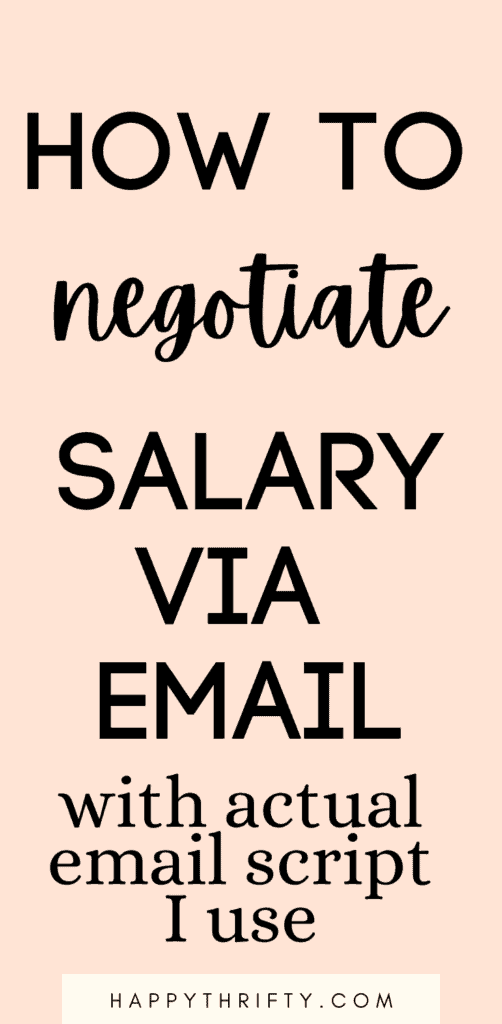Some argue that if you don’t have enough experience, you don’t have room to negotiate. However, if you feel that the compensation being offered does not feel match the skills you bring to the table, you should consider negotiating. The company may offer the low end of the range they can offer.

If throughout the interview process, you show that you can do the work, you are in a better place to negotiate. Also, in most cases, having an alternate offer will greatly help you to be in a stronger position.
Why do you need to negotiate?
The truth is your first salary is actually quite important. It does affect your second salary, third, and so forth. Throughout a lifetime, the difference in earnings between one who negotiates and one who doesn’t can be significant. Particularly if you save the money and invest them early, you can build your FU money quickly and maybe even retire early.
There is no harm in asking if we ask it correctly and properly.
The worst thing that could happen is they will say no. They will unlikely withdraw the offer because they have spent money, effort, and time to hire you.
I got my first job here after being in the US for about a year and a half and frankly speaking, I was not a fluent English speaker. It took me some time to develop my speaking skills. But whether you negotiate in your mother tongue or a foreign language, negotiation is still a nerve-wracking experience for most people.
When I got my first job offer, I felt that the company gave me a lowball offer. So, instead of negotiating over the phone or face-to-face meeting, which I knew I would probably not perform well, I negotiated by email. I did it in the first and second companies, and both companies gave me a few thousand dollars in annual salary raise.
The truth is that a few thousand dollars mean nothing to the company, but it means a lot to me. I can use the money to travel, pay off my school debt, pay off my auto insurance premium early, build my FU money or buy a new pair of Converse sneakers.
Some of the phases you can use, such as “Is there a room for negotiation?“, “Do you have flexibility in that number?” can be a good starting point.
Email Script
This is an email script I used to negotiate my first job after graduate school
“I do appreciate the offer at $xx,xxxx. According to my research (you can put a glassdoor link at here), I found that the average salary for the position to be around $xx,xxx. I do feel, though, my summer internship experience at Company A, along with my advanced degree will positively impact my ability to do the job. Would you consider an offer closer to $xx,xxx? I am looking forward to being a part of your organization. Thank you very much for your consideration.”
If you get a call from HR and they start to mention the number over the phone, you probably don’t want to say yes immediately. You can say something like, “Thank you for the offer. Can you please send me some more info such as the job description? I would like to take some time to evaluate it and I come back with you by tomorrow if that’s okay.” to buy some more time.
After you accept the offer, don’t also forget to ask for the offer in writing so you can double-check everything, such as your responsibilities, the base salary, the health insurance, etc. I had an experience where HR was not honest and asked me to sign a contract where it has the base salary before the agreement.
So, do your research first, do the hard work upfront and know what you are worth. If you genuinely feel that you deserve more, don’t be afraid to ask! That single conversation through email or phone can make a big difference.

Vi, a software engineer with a keen interest in personal finance, had planned to retire once she reached her lean FI/RE (Financial Independence/Retire Early) goal. However, after achieving the goal, she took few months of a mini-retirement filled with travel and adventure and decided to continue her career.
For the past five years, Vi has been using Personal Capital (Empower), a free financial tool. Her favorite features include the dashboard for net worth, allocation, and planning, which help track her FI/RE goal and keep those investment fees in check.